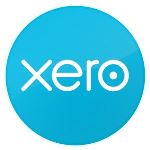Business owners need to keep accounts in order to determine their profitability (or not) and to satisfy HM Revenue & Customs requirements so there can’t be many business owners who aren’t using one of the myriad of accounting software to do this. But using accounting software is not a necessity. If you only have a few transactions a handwritten cashbook may suffice, or you may prefer to use a spreadsheet. However spreadsheets are open to error – transactions or formulas can be easily deleted and pulling the data into an income and expenditure account takes a little knowledge and time.
The alternative is to use accounting software and we would definitely recommend this if you are VAT registered.
 There are a number of options for small businesses but the most popular at the moment is Xero, an accounts package “in the cloud” which is available to you anywhere anytime. We have been working with Xero for six years now and whilst it is not the only accounts software we use, it is the most popular at the moment.
There are a number of options for small businesses but the most popular at the moment is Xero, an accounts package “in the cloud” which is available to you anywhere anytime. We have been working with Xero for six years now and whilst it is not the only accounts software we use, it is the most popular at the moment.
So what is good about Xero? Here are five of the things we think are best.
Invoicing
- Being able to create an invoice whether you are in an office or out on the road and send it by email straightaway
- Or being able to produce and send regular “repeating” invoices on a given date without any intervention from you
- Or being able to create a number of bespoke invoices but send them all in one go in seconds with a standard message
- Being able to see instantly which invoices you have sent and which have been viewed by your customers
Bank feeds
- Receiving your bank transactions directly into your accounts software so that you can instantly match receipts from your customers with their invoice and payments to your suppliers with their invoice
History
- Every transaction will show when it was created and by whom. It will show when it was changed and by whom.
- An invoice will show when it was raised and when it was sent and to which email address.
- You can add a note to any transaction. If you add a note to a customer invoice (purely for your own information) that note will show when you look at your customer record so you have an instant reminder when you access their record.
Reporting
Xero produces reports almost instantly. A month by month profit and loss report is produced at the touch of a button. Whilst you are in the report just change the reporting period to look at the total for the year. Then add how many previous periods you want to compare this year with and you have an instant view of how you are doing now to last year and the year before and for however many accounting years you have in your Xero software.
Tracking
You can add one or two categories to every transaction to break down your reporting even more. Each category can have an even greater breakdown. So you might want to record your sales by Salesperson and/or by Area. These would be your two categories and within each of the categories you would have a further breakdown of name of sales person and name of area (perhaps country). Reporting is still at the touch of a button but now you can have a profit and loss by salesperson and/or by area.
 Each accounting software will offer you something different and each business owner or their bookkeeper will identify which software suits their needs the best. Cloud accounting software has been made much easier to use than the traditional desktop software such as Sage 50 and Quickbooks which really need bookkeeping or accounting knowledge.
Each accounting software will offer you something different and each business owner or their bookkeeper will identify which software suits their needs the best. Cloud accounting software has been made much easier to use than the traditional desktop software such as Sage 50 and Quickbooks which really need bookkeeping or accounting knowledge.
But whilst cloud accounting software is more user friendly it does still need some knowledge of bookkeeping or accounting to ensure that the your accounts are accurate. After all the information you get out is only as good as the information you put in – accounts require consistency to produce reports that are valuable to you now.
If you want to use Xero or are using Xero now but feel you are not getting the best out of it we can provide you with bespoke training and support to get you on the right track.
Leave a Reply